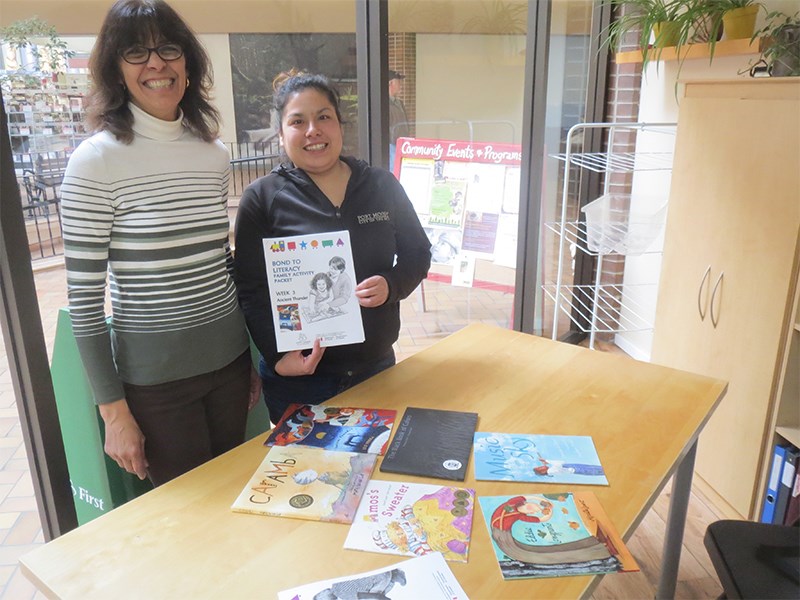A new educational service is coming to Powell River this spring. Part of HIPPY Canada, Bond to Literacy is a national program targeting children ages three to five with a goal of helping them succeed in school.
“We’re calling it HIPPY Literacy, because we don’t want people to be confused with our existing BOND program for young families,” said Powell River Family Place facilitator Maria de Mira, “but it has nothing to do with the hippies of the ’60s; HIPPY stands for Home Instruction for Parents of Preschool Youngsters.”
According to de Mira, parents and caregivers are children’s first and most important teachers.
“This program is about empowering them for that role,” she said.
Local HIPPY program facilitator Diana Amundsen, a mother of three, said it is a great opportunity to prepare kids and their parents for kindergarten. The program starts April 7 and runs for 12 weeks.
“Every week we look at a new book for the parents to read with their kids,” said Amundsen. “We go through it together and then go through an activity package the parents can use to further engage their kids with the books.”
According to Amundsen, books are carefully chosen to provide a collection that focuses on quality, ease of reading, story messages and multiculturalism.
“The group meets for two and a half hours at a time,” said Amundsen. “All the activities build on each other throughout the program, so we expect participants to commit to the full 12 weeks.”
While parents are taking HIPPY Literacy classes, Family Place provides the children with a place to play, said Amundsen.
De Mira said the activity guides are designed to foster specific skills. Activities such as making paper planes or cutting out shapes using scissors can help children build their fine motor skills, she added.
“Then there’s gross motor skills, things like throwing a ball, and also the ability to listen to directions and problem solve,” said de Mira.
But the program isn’t just about the skills, said Amundsen.
“By creating a fun routine between parents and their children through these books and activities, you create a really strong bond as well,” she said.
According to Amundsen, supporting children in these activities sets an important precedent.
“You establish these ongoing relationships where kids feel comfortable coming to their parents for help with homework,” she said, “and parents feel confident helping them.”
Amundsen said the program will also aim to serve families who are isolated from their communities.
“After 12 weeks of these families spending time together, all of whom have children of similar age, we’re going to see some friendships formed as well,” said Amundsen.
Amundsen said Bond to Literacy is in its first year, “so we’ll see how the community becomes involved with it.”
The program is also taking place in other cities across BC, including Vancouver, Kelowna and Houston.
As a facilitator, and alongside others from across BC filling similar roles, Amundsen attended a three-day workshop led by HIPPY Canada.
As part of her role, she will measure the program’s success and file reports to HIPPY every week, as well as meeting online with other facilitators for discussion and ongoing support.
“We’re going to be doing three sessions of this program,” said Amundsen. “One in the spring, and two later in the year, with 12 classes each.”
According to Amundsen, registration is limited to 10 families for each session. For information, call Family Place at 604.485.2706.



